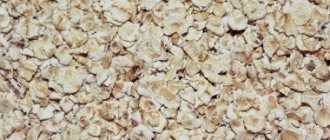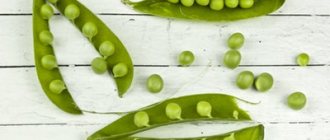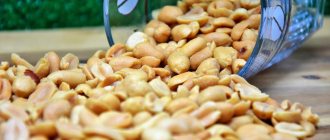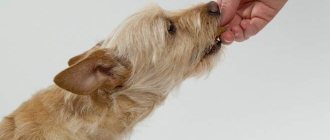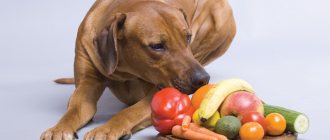Even though dogs are carnivorous animals, they need to eat plant foods from time to time. Only vegetables and fruits can provide the animal’s body with the necessary vitamins and fiber.
Many owners “dilute” their pets’ menu with plant foods, and this is absolutely right. However, we must remember that many vegetables that are familiar to the human diet may not be so beneficial for animals, and sometimes even very harmful. One such vegetable is onion.
Why can't you give?
More recently, in Soviet times, dog handlers recommended including onions in a dog’s diet as a powerful bactericidal and antiparasitic agent. However, modern veterinary research has shown a connection between its consumption and the development of hemolytic anemia in dogs.
Hemolytic anemia is a specific blood disease, the cause of which is increased destruction of erythrocytes, red blood cells that carry oxygen.
The process of destruction of red blood cells is triggered by the transformation of hemoglobin into metahemoglobin - a substance similar in structure to hemoglobin, but not capable of binding oxygen. One of the reasons for such “damage” of hemoglobin is the effect of a certain group of oxidizing substances (allyl propyl sulfide, dipropyl disulfide and some others).
These substances are found in large quantities in onion essential oils. Once in the animal's body, they very quickly begin to affect blood cells, starting the process of disease development. Oxidizing substances are found not only in onions, but also in all plants of this genus - garlic, green onions, shallots, wild garlic and others.
Hemolytic anemia develops very quickly, is difficult to treat and seriously undermines the health of the animal. Rapidly developing anemia when poisoned with a large amount of onion often leads to death. Therefore, you should protect your dog from these plants as much as possible and exclude the possibility of them getting into food.
It is worth noting that onions are toxic not only to dogs, but also to other domestic animals, including cows, goats, sheep and horses. However, dogs and cats are most sensitive to the toxins it contains.
Is it possible to give dogs onions?
There are dog breeders who give their pets this onion vegetable as a bactericidal agent. During the Soviet Union, even dog experts advised diluting the pet’s menu with this product in order to strengthen the immune system and prevent parasites. The vegetable also contains B vitamins, iron, fluorine, zinc and manganese, which have a beneficial effect on the functioning of the cardiovascular system.
Others feed their pets green onions, claiming that they are equal to grass and have a beneficial effect on intestinal function. So can dogs have green onions or other varieties? Does the product provide any benefit?
Bulb
Modern research on the question of whether a dog can have onions gives a categorical no. This type of vegetable is the most toxic for animals; even in large breeds, poisoning occurs after eating 5 g of the product.
The reason for this is the high concentration of essential oils, which makes a person’s eyes water. They contain sulfides and disulfides, which animals cannot break down. Under their influence, red blood cells are oxidized, hemoglobin becomes methemoglobin, which is not able to deliver oxygen to the organs. As a result, all life support systems suffer, and hemolytic anemia develops.
Theories that onion “miracle remedy” will save you from helminths or ticks are myths. If there are parasites, then only pharmaceutical preparations will remove them; no methods from traditional medicine will work. The sharp smell can scare away blood-sucking dogs only if you rub onion juice on the fur, but the dog himself will suffer from this.
Green
The feathers of the green “brother” of the vegetable contain less odorous esters than the head, so they do not cause an immediate negative reaction. However, toxic substances are present in them; constant consumption of “greens” will lead to stomach problems, anemia, and iron deficiency.
shallot
Shallots differ from onions only in taste; their compositions are similar. Essential oils are contained in the product in large quantities; it is also contraindicated for dogs.
Leek
The stem and leaves of leek are used in cooking; the amount of esters in them is several times less than in the onion. With a single use of the plant, only an allergic reaction can be observed; if it is constantly added to the menu, there is a risk of developing the listed pathologies.
Some dry food contains dried onions and garlic. Manufacturers justify their addition by their antibacterial effect, but the benefits of these products are a controversial issue.
Different types
Bulb
Onions are extremely poisonous to dogs. Intoxication in medium and large breeds develops after consuming 5 grams. Therefore, this plant should not be given to your pet in any form.
Green
The feathers are less toxic than the bulbs themselves, but they are also dangerous. It is not recommended to give them as food to animals.
shallot
Shallots belong to the same genus of plants as onions, therefore, their essential oils also contain oxidizing substances. Therefore, it is contraindicated for animals.
Leek
The leaves and false stem of leeks, which contain fewer toxins than the bulbs, are usually eaten. However, it is not recommended for dogs to eat it either.
Why does he eat and how to wean him off?
Animals usually do not tend to eat foods that are potentially dangerous to them. Natural instincts reliably protect pets. But this does not apply to onions and garlic. A very bright aroma attracts curious animals; they cannot resist the temptation and eat an interesting product. Therefore, there is only one way to wean your dog off the plant: by providing it with interesting toys and limiting access to prohibited foods. Without getting into the dog's field of vision, dangerous products will not be of interest to him. Of course, you cannot include a dangerous plant in your diet in raw or prepared form on your own.
Is it useful?
Some dog breeders recommend giving onions to their pets from time to time as an antiparasitic and bactericidal agent. Experience shows that in small quantities it actually has similar effects: it helps get rid of parasites and helps in the treatment of viral diseases.
However, the substances contained in it tend to accumulate; there is a high risk that after a month or two of consuming this product, the animal will develop intoxication, which will lead to anemia. Therefore, it is better not to jeopardize your pet’s health and choose less toxic antiparasitic agents.
Onions as a food product
The vegetable is very popular in the diet of people; it is eaten green, raw, boiled and fried. It is especially in demand during colds, as it has powerful antibacterial and antiviral effects. The vegetable contains a lot of B vitamins involved in metabolism, nutrition and the functioning of body cells. There is no less iron, fluorine, manganese and zinc in onions.
In combination, beneficial substances stimulate the gastrointestinal tract, prevent the risk of heart attack, and have a beneficial effect on the functioning of the heart muscle. The special value of onions is that they reduce the risk of cancer.
Boiled and fried
During heat treatment, the main oxidizing substances - allyl propyl sulfide and dipropyl disulfide - are destroyed. However, a substance such as sodium n-propyl thiosulfate remains in it, which has similar properties. Therefore, boiled onions are no less toxic than fresh ones, and they should not be given to dogs either.
Frying involves more severe heat treatment than boiling, and yet even fried vegetables retain toxins. Fried onions are also contraindicated for dogs.
Treatment of onion toxicity in dogs
Upon arrival at the veterinary hospital, and depending on when your dog ate onions, your veterinarian may prescribe medication to induce vomiting. Once your dog has regurgitated all the onion in his stomach, the veterinarian will give him medication to stop the vomiting and then some activated charcoal to bind and neutralize any remaining onion substances in your dog's gastrointestinal tract.
They will also perform a blood test to check your dog's red blood cell count as well as their organ function. Depending on the severity of your dog's anemia, it may require hospitalization, fluid therapy through an intravenous line, and, if it is severe enough, a blood transfusion.
Anemia caused by onion toxicity can be fatal in dogs if not treated promptly, so seek medical attention from a veterinarian at the first sign of illness.
For puppies
All types are strictly contraindicated for puppies. Poisoning and anemia develop much faster in them than in adults, and the risk of death is much higher. You should not give onions to puppies in any form - even dried, as the dried vegetable retains its toxic properties.
For this reason, you should not feed puppies with baby meat purees - dried vegetables are often added to them as a seasoning. It is absolutely safe for children, but it can cause serious harm to a puppy’s body.
Dogs and berries: pros and cons
There is no categorical ban on treating your pet with raspberries or gooseberries. However, as in the case of vegetables and fruits, new foods should be introduced into the animal's diet with caution. The first portion should be small, and the dog’s behavior should be observed by the owner for some time.
Recommended berries are:
- Blueberries are a storehouse of antioxidants. The substances in its composition prevent cell aging and promote their renewal.
- Strawberries can whiten teeth due to the large amount of a special enzyme.
- Raspberries will relieve pain and have an anti-inflammatory effect. In addition, dried raspberry leaves, crushed into powder and added to porridge, will significantly facilitate the birth of a whelping female.
- Rowan and gooseberries are very useful.
- Cranberries have an excellent effect on the condition of the animal’s genitourinary system. Eating berries improves the functioning of the urinary tract. Antioxidants, vitamins A, B, C, K, as well as calcium, phosphorus and potassium help cranberries prevent infections and cleanse the kidneys.
Breed exceptions
Unfortunately, there are no exceptions. Plants of the Onion genus are toxic to all breeds. However, small breeds are at particular risk, since a very small amount of this vegetable is enough for them to develop intoxication.
A large dog weighing 20 kg can eat a “critical” 5 grams without serious consequences, but for a small dog such an amount can be lethal.
Also, increased sensitivity to onion toxins is observed in Japanese breeds of dogs, such as Shiba Inu and Akita Inu.
A little analysis
Friends, as you see, not everything is so simple. It cannot be ruled out that onions are dangerous for dogs and some animals actually died from them. But unfortunately there are no long-term studies of this issue conducted according to the rules. Just as there is no reliable data from the opposite side talking about the benefits of garlic for dogs.
In order to determine how a certain product acts on the body, you need to take two groups of animals: one control, and the other experimental. And the larger these groups are, the more reliable the result will be. Then one group of dogs was given a different form and dose of onion, and the other a placebo. Constantly monitor and then analyze the data obtained.
And so there are many inaccuracies; on the one hand, we see that the dogs actually die, but at the same time we did not exclude possible diseases not related to feeding. Breed characteristics, gender, age and other important factors were not taken into account. Also, they do not take into account individual sensitivity, and it should be, it has been proven that not everyone can normally tolerate garlic (if you take a person).
And the same thing happens in the other camp, those who are for onions. Yes, many dogs eat onions and garlic for years without apparent problems, but they may not be receiving a significant dose of toxins and adjusting. No one ruled out this option, at least I did not find any research results.
Another fact that adds to the confusion is animal feed additives containing garlic and onions. You can find special vitamins for dogs and cats with garlic, onions, pumpkin seeds and other ingredients at the pet store. Moreover, the manufacturers of these additives are world-famous and should not risk their reputation just like that.
It is obvious that someone is mistaken on this issue.
Symptoms of poisoning
Signs of poisoning become noticeable about a day after eating a toxic product. It can be:
- diarrhea;
- vomit;
- abdominal pain;
- depressed state of the animal.
Specific symptoms of onion poisoning appear after a few days, when hemolytic anemia begins to develop. These include:
- pallor of the mucous membranes;
- rapid, shallow breathing;
- tachycardia;
- lethargy, lethargy;
- darkening of urine.
During examination, an enlarged spleen is also often observed.
How the condition manifests itself
On the first day, the symptoms are nonspecific and simply resemble poisoning:
- pain in the abdomen (the dog does not allow it to be touched, chooses forced, outwardly strange positions, but in which it does not hurt),
- vomit,
- liquid feces,
- obvious oppression, weak reaction to what is happening around.
A little later, more serious symptoms are added (accompanying anemia itself):
- pallor of the mucous membranes, turning into jaundice,
- rapid breathing and heartbeat,
- darkening of urine to reddish-brown shades,
- lack of urination (anuria),
- increased blood filling of blood vessels (increased pressure),
- excessive weakness, even lethargy (complete immobility during sleep).
Important: the intensity of the symptoms does not depend at all on what exactly the dog ate - green onions or onions, as well as fresh or dried garlic. The concentration of toxic substances does not depend on the heat treatment of the product.
What to do if you eat it?
If your pet has recently eaten onions, then the first thing you should do is rinse his stomach. First of all, it is necessary to eliminate the source of toxins. Then you should give the animal a sorbent that will absorb toxic substances and prevent them from being absorbed into the blood.
To slow down the process of hemoglobin transformation, it is necessary to give the animal ascorbic acid at the rate of 30 mg per kilogram of weight. This should be done every 6-8 hours during the day.
If the dog has eaten a lot, then he must be immediately taken to the veterinarian, since poisoning develops very quickly, and delay due to unsuccessful attempts at home treatment can cost the pet his life.
Onion - from seven ailments
Yes, this popular saying has been known for a long time, and indeed, this bitter-sweet vegetable is present on our table not only because without it many dishes lose their taste, but also due to the presence of useful substances in it.
Onions have been known as a cultivated plant for more than five thousand years. In Ancient Greece, it was considered a sacred vegetable, a symbol of the structure of the Universe. In ancient Greek mythology, you can find a legend that the nymph Oneis (“unity”) was the center of all movement; all celestial bodies were attached to this center, like layers on a bow. God Pan was the son of the nymph Oneis and the god Zeus, and on holidays his figure was showered with onions, and the one who brought the largest onion received a gift from the Delphic priests. The onion was also revered as a deity in Ancient Egypt.
A person eats both the green leaves of the plant and its underground part. Green and onions are added to almost all dishes - salads, soups, main courses, sauces and baked goods, improves the taste of the dish and delivers beneficial substances to the body.
Green leaves (“feathers”) contain sugars, proteins, vitamin C (ascorbic acid). These are vital substances for any living organism. Onions contain:
- up to 14% sugars, including sucrose, fructose, maltose, inulin (polysaccharide). Their presence explains the sweetish taste of onions;
- up to 2% proteins;
- vitamin C;
- minerals – salts of potassium, iron, phosphorus, iodine, etc.;
- flavonoids (quercetin). They provide protection to the heart, brain and other body tissues, reduce the risk of chronic diseases of the cardiovascular system, and normalize blood pressure;
- saponins are complex organic compounds of natural glycosides that have a number of useful properties - they stimulate the production of enzymes and hormones in the body, cleanse the blood of fatty substances, etc.;
- essential oils;
- pectins;
- organic acids – malic, citric;
- phytoncides – kill many types of pathogenic bacteria, protozoa and fungi.
Onions are a storehouse of substances beneficial to the body; it is not for nothing that they were honored in ancient times. Even under Hippocrates, it was recommended to eat it for gout and rheumatism; the famous Persian physician Avicenna also wrote about the beneficial properties of onions back in the 11th century.
What are the benefits of eating onions:
- bone tissue density increases, the risk of fractures decreases;
- decreasing blood glucose levels, increasing insulin levels;
- reducing the risk of developing cancer;
- lowering blood cholesterol levels, reducing the risk of heart disease.
But why, with all its healing properties, onions are contraindicated for pets?
Why does he want to?
Usually dogs are indifferent to this plant - it contains a lot of essential oils that irritate their sensitive sense of smell. Therefore, if a pet is interested in a bulb, then this is almost always ordinary curiosity.
You should not take away a harmful product by force - it is important for the animal to explore the world around it. However, you must be careful to ensure that the dog does not chew the onion.
Favorite and exotic fruits
Not all garden fruits are recommended for shaggy pets. When discussing what vegetables and fruits dogs can eat, one cannot help but think of exotic foods. It is immediately necessary to make a reservation that overseas fruits should be given with caution, infrequently and in small quantities.
Papaya is a fragrant, sweet fruit that pets enjoy eating. A small slice of peeled fruit can stop diarrhea. But a large amount of fruit causes constipation and increases blood sugar.
Kiwi is rich in vitamin C and valuable fruit acids. If you give this fruit to a dog, then no more than once every 2-3 weeks. A small circle of kiwi will enrich the animal’s body with beneficial vitamins.
Soft varieties of persimmon without pits or peels will help normalize intestinal function and strengthen loose stools. It helps a lot with diarrhea and indigestion.
Apricots should also be given peeled and pitted. It contains hydrocyanic acid. After eating even one apricot seed, a dog can die. The fruit itself is very nutritious. But in young dogs and puppies it can cause diarrhea. Therefore, it is recommended to give apricots to your pet with caution.
